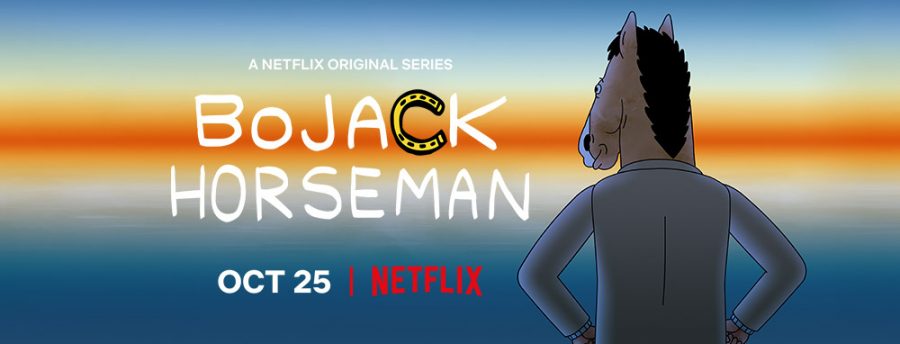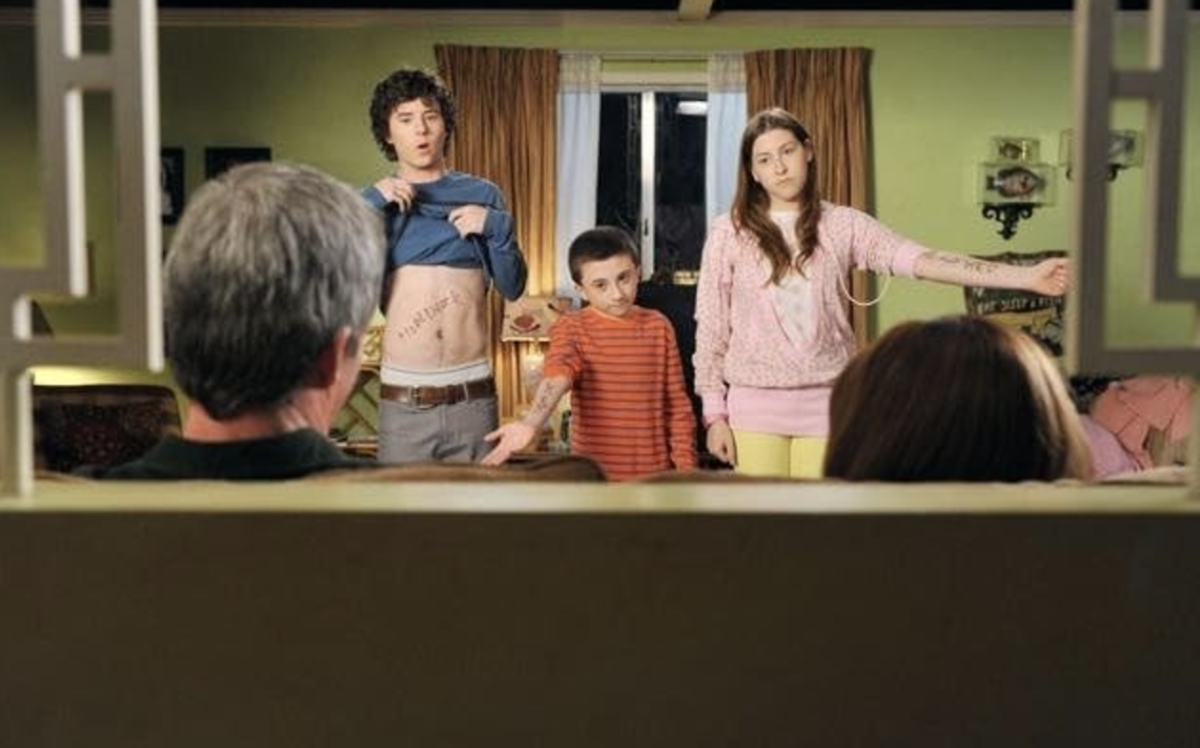This contains spoilers for “BoJack Horseman” season six: part one.
“BoJack Horseman” season five ended on an optimistic note for the titular character, a stark contrast to the resolutions of the previous four seasons. In the climax of season five, viewers were treated to BoJack violently strangling his co-star Gina while high on a concoction of pills. After attempting to apologize and make amends, which Gina refuses, BoJack accepts that he needs help and goes to rehab.
Season six begins on a true attempt at forward progression for the main character, something that has previously not existed in the show. It is through these eight episodes that the viewers are treated to multiple themes of forgiveness, consequences for one’s mistakes and attempts at healing or becoming a better person. The first half of “BoJack Horseman” season six is a delight: it is a constant high of beautiful animation, positive character progression and the same dynamic and intelligent writing that has encompassed the show so far.
Despite all of this, the sanguine tone the show takes at times feels artificial, leaving the viewers wondering if this is something that can be sustained. Can BoJack, a character who has done countless horrendous things to people, become a better person? Through the first seven episodes of the seasons, show creator Raphael Bob-Waksberg allows us to think that this is a possibility.
Episode seven is unequivocally the most cheerful episode in the show’s six seasons. The viewers are treated to BoJack escaping his toxic life in Los Angeles, opting instead to wake up in a new city every day. We follow his journey as he visits his friend Diane in Chicago and, in one of the kindest acts he commits, motivates her to receive help for her depression. He even helps clean her rancid apartment that is littered with trash from months of neglect.
The BoJack the show had established in the previous five seasons would have dragged Diane down further. Instead, we are treated to a sober BoJack, a kinder character in contrast to his former self. Continuing this, he further makes amends with an old friend on the television show that he got fired from. It is with this character that the show utilizes age to convey a changing BoJack. His friend removes his dyed black hair to reveal a distinguished grey, which he promptly embraces and even dons a new coat and scarf; this friend’s physical transformation signifies the evolution of BoJack himself. This trend continues with more characters: Mr. Peanutbutter, Todd, Hollyhock and Princess Carolyn. BoJack aids them all and providing them with long-overdue kindness and appreciation.
The show’s creators are desperately conveying that BoJack is changing for the better, that he can make amends for his past actions, that a positive change is possible despite how egregious his actions were in the past. However, in standard form for the show, in episode seven, after BoJack visits an old reenactment show, another horse approaches him and says, “Looks like you found some solace in our show. Stay if you like; in thirty minutes, we start over”. Although not directly addressed to the audience, the line is most definitely a meta acknowledgment of the entire season, with it being an overall positive experience with forwarding progression for the characters. This line is the show creators directly addressing the audience and throwing the biggest question of all at the viewers: Did you really think that BoJack could move past all of the horrible things he has done to people in the past?
Episode eight serves to answer this question as the entire episode is a cruel reminder of the ramifications of BoJack’s actions. This is done by focusing the episode on the multiple prevalent women who he has severely scarred: a few of these women show signs of PTSD and severe anxiety as a direct result of BoJack’s actions. None of our main characters are present in this episode; instead, the show creators decide to focus heavily on the women in BoJack’s past, opting to show their damaged psyche. The episode wants to remind viewers that despite BoJack’s positive development with other characters, there are still plenty who he has left severely broken. The episode ends with a reporter beginning to discover BoJack’s connection to Sarah Lynn’s death along with his involvement with Penny, the teenage girl from Nevada. The half-season ends on a shot of Hollyhock out on the balcony, waiting to be told about BoJack’s actions in Nevada. With Hollyhock being one of the only truly good relationships BoJack has, everything he has worked for in this half-season is in danger of collapsing, speaking heavily on the theme of past consequences.
“BoJack Horseman” season six: part one is a phenomenal half-season that stands with the upper echelons of the series’ previous highs. The voice work, subtle humor and superb animation style are all extremely well-done in this season. It is the narrative elements that are the true standouts of this half-season though, with the writers often displaying their prowess, particularly with the stark contrast between episodes seven and eight. “BoJack Horseman” is one of the best things on television right now. With the final half of the season releasing on Jan. 31, 2020, viewers are forced to wait, fists-clenched, as they contemplate if the characters can truly have a happy ending.
Tyler Clardy can be reached at [email protected].




















